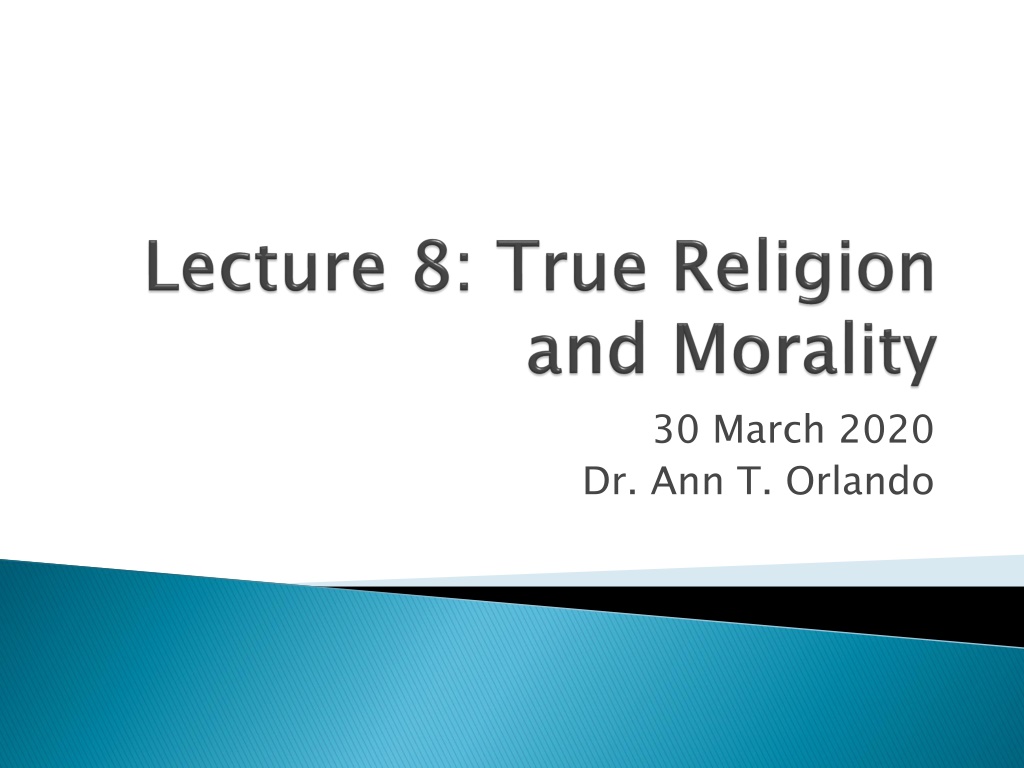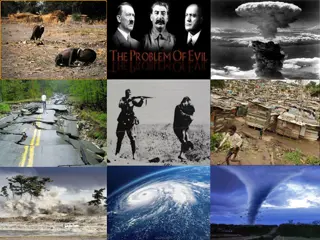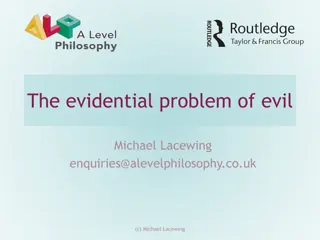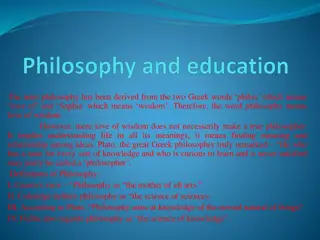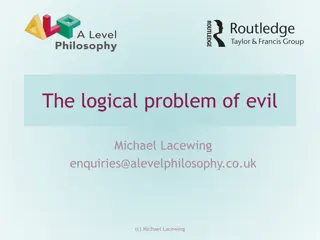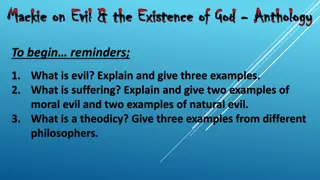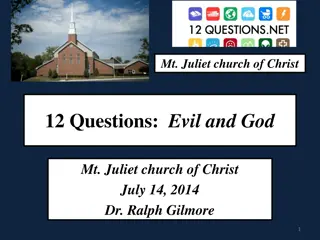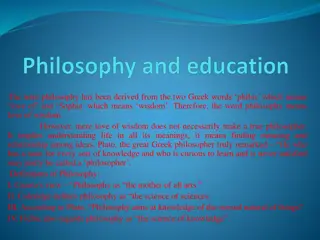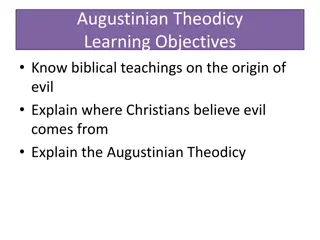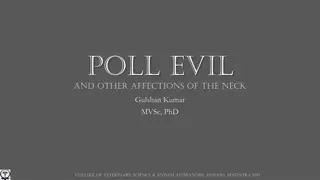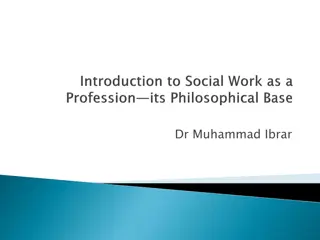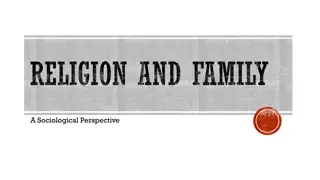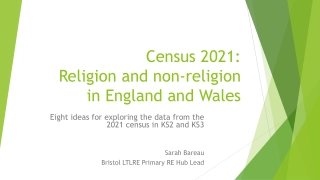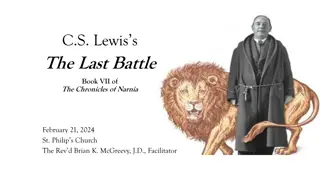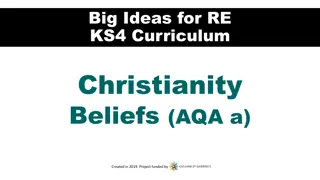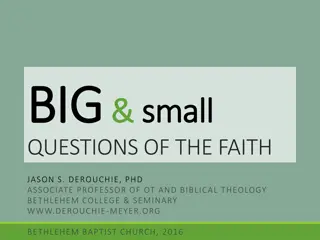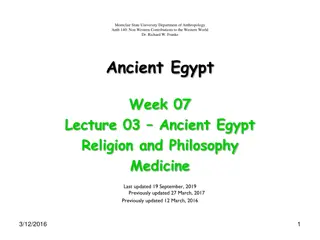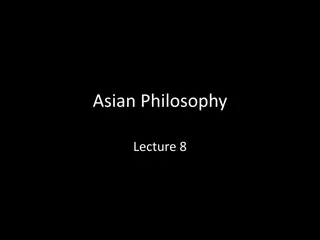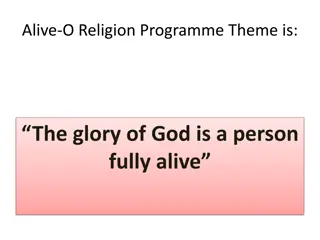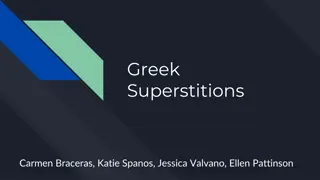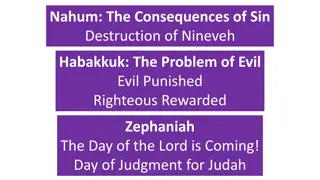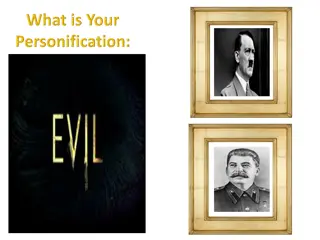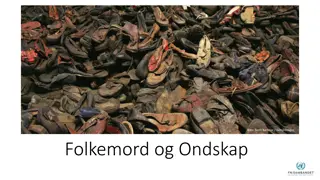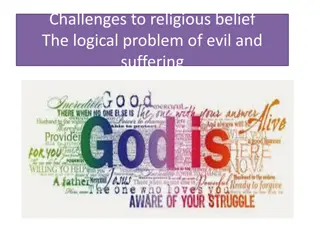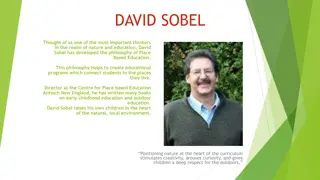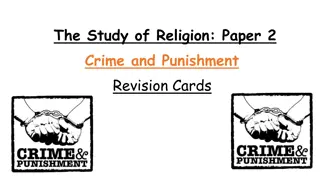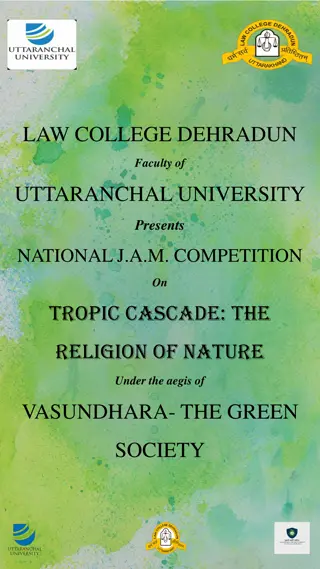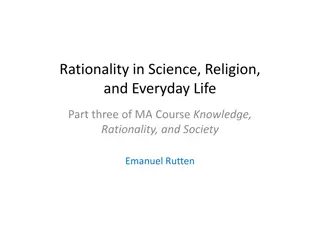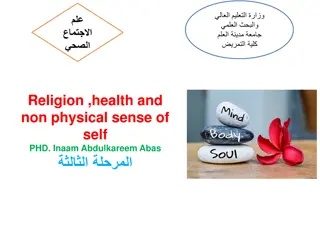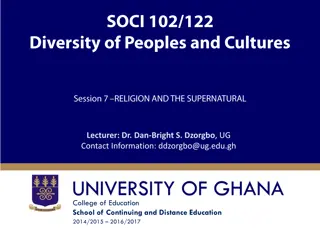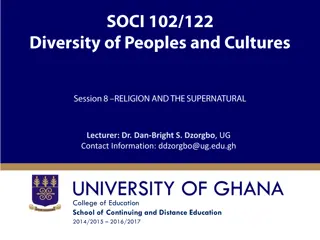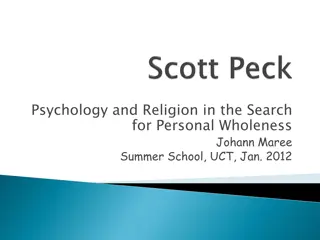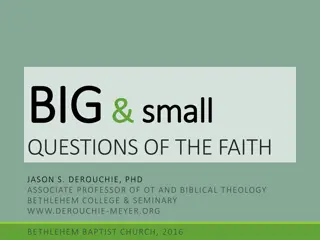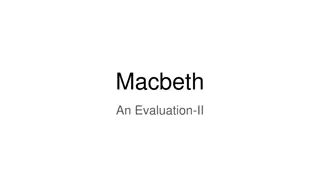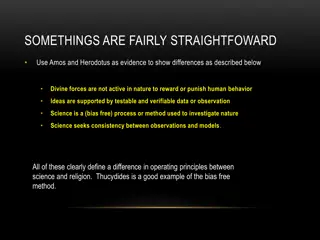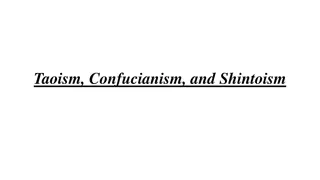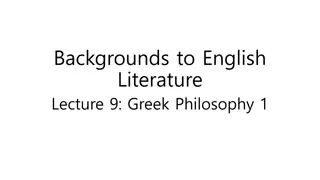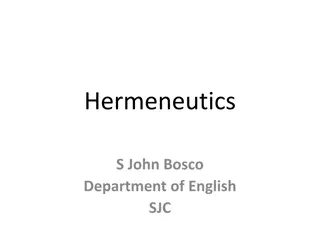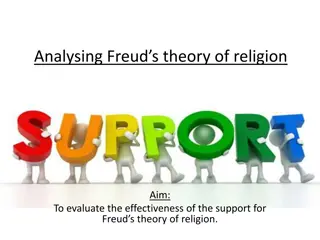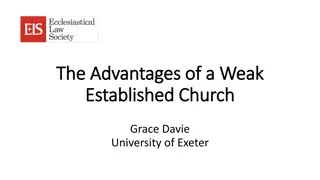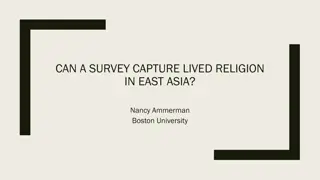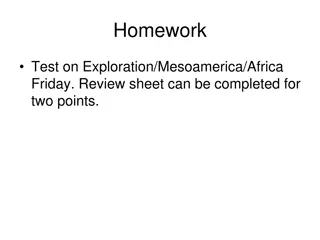Exploring the Nature of Evil in Philosophy and Religion
Delve into the concept of evil through the lens of philosophy and religion, examining different perspectives on the existence of evil, its relationship with divinity, and its implications for human morality and happiness. From ancient philosophical debates to theological considerations, discover how thinkers grapple with the presence of evil in the world and its impact on society.
Download Presentation

Please find below an Image/Link to download the presentation.
The content on the website is provided AS IS for your information and personal use only. It may not be sold, licensed, or shared on other websites without obtaining consent from the author. Download presentation by click this link. If you encounter any issues during the download, it is possible that the publisher has removed the file from their server.
E N D
Presentation Transcript
30 March 2020 Dr. Ann T. Orlando
Evil On True Religion (De vera religione) Love; not an emotion Sermons 53A and 161
Evil is the obstacle to the prevents the happy life But what is evil Theodicy problem : how can there be a evil and suffering and at the same time a good, loving, creator God Possible solutions: There is no god (Epicurus) Creator god not good (so Gnostics, Manichees) Evil is not a substance, but rather an absence from the creation of the good God (so Plotinus)
Alexandrian philosopher, considered himself a Platonist Contemporary of Origen and Mani Subsequently referred to as a Platonist ; Term Neoplatonism an invention of 19thC Developed a metaphysics of the One Good spiritual creator God Simple, self-caused and cause of all else Problem: Then how can there be evil Solution evil is the absence of a good that should be there Evil does not have an independent existence Ethics based on soul s return to the One Spiritual progression in steps to the One Sin is turning away from approaching the One
Natural Evil Suffering and difficulties are teachers God s response to Job: there is no answer that man can understand Moral Evil Result of man s freedom to choose Proclivity to evil and original sin
In the Confessions Evil the key question for Augustine; it is what prevents him from being happy Starts his turn away from Catholicism over this question (Confessions Book III) Return begins with the solution found in the books of the Platonists (Confessions Book VII) Recall On Free Choice of the Will begins with the question of evil.
Review from previous study Happiness only found in highest good, the Trinity Truth in likewise only found in the Trinity We need proper authority to help us search for the Truth Without Truth, language has no meaning Now lets think about morality Without Truth, we cannot know what the moral life is Even seemingly good works (virtues) are not so if not directed toward proper end
Without Truth we cannot know what the moral life is How we live should be pointed to achieving our ultimate end, the Happy Life Even if we engage in some good works (virtues) they are not really part of a moral life if not directed to the Happy Life
Illuminated by grace at each step We begin with belief, based on authority of the Church; We move (are moved) to an understanding of what we believe; We move (are moved) by this understanding to act in love
Human proclivity to sin is a result of original sin Without grace, man always will fall into sin Charity (grace, gift of the Holy Spirit) is the only virtue
Sin against belief is pride Reliance on ourselves as the beginning (and end) Sin against knowledge is curiosity Knowledge for its own sake Sin against love is cupidity Wanting the wrong things
Addressed to Romanianus, Augustines wealthy sponsor from Thagaste Augustine s education in Carthage Augustine encouraged him to become a Manichean hearer Cassiciacum was an estate owned by Romanianus De Vera Religione encourages Romanianus to leave the Manicheans and become a Catholic Christian Written just before Augustine s ordination in 390 See Letter 15
Prolog (i.1-x.20) Discussion of Plato and Platonism Why Plato would be a Christian if alive Section A (xi.21-xxiv.45) Discussion of problem of evil Section B (xxv.46-liv.106) Ascent to God Begins with authority and who to believe Stages of spiritual growth Rational mind searching for the truth which is above it Conclusion (lv.107-113)
Phantasms = vain thoughts (#2) Sin is voluntary evil (#5) Miracles do occur now, by the grace of Christ acting through others (e.g. martyrs) (#7)
Amor, dilectio, caritas In Augustine, amor and dilectio can be directed to the cause of good or bad intents leading to good or bad actions Dilectio seems to be used associated with the love of things that we enjoy Caritas seems to be used almost exclusively for the love (charity) within the Trinity, and our approach to that love; as in Deus caritas est Caritas seems to have the same relation to amor that sapientia has to scientia
Basically Augustine Example: Aquinas in ST Ia 48-49 addresses evil in general Evil has no existence in reality Evil cannot exist without the presence of some good Note: Church still follows Augustine in this, see definition of evil in CCC glossary
Petrarch (1304-1374) Well known for his reading of Confessions In his Secrets, he has Augustine as an imaginary interlocutor In which Augustine frequently cites On True Religion Petrarch noted in his copy of On True Religion how valuable it was to him Petrarch asked to be buried in Pavia, in the same church as Augustine
On True Religion in Augustine: Earlier Writings Sermons 53A and 161 in Saint Augustine Essential Sermons
Smith, J. Warren. Loving the Many in the One: Augustine and the Love of Finite Goods, Religions 2016 7(11) Levering, Matthew. Theology of Augustine. Grand Rapids, MI: Baker, 2013. Ch. 3
